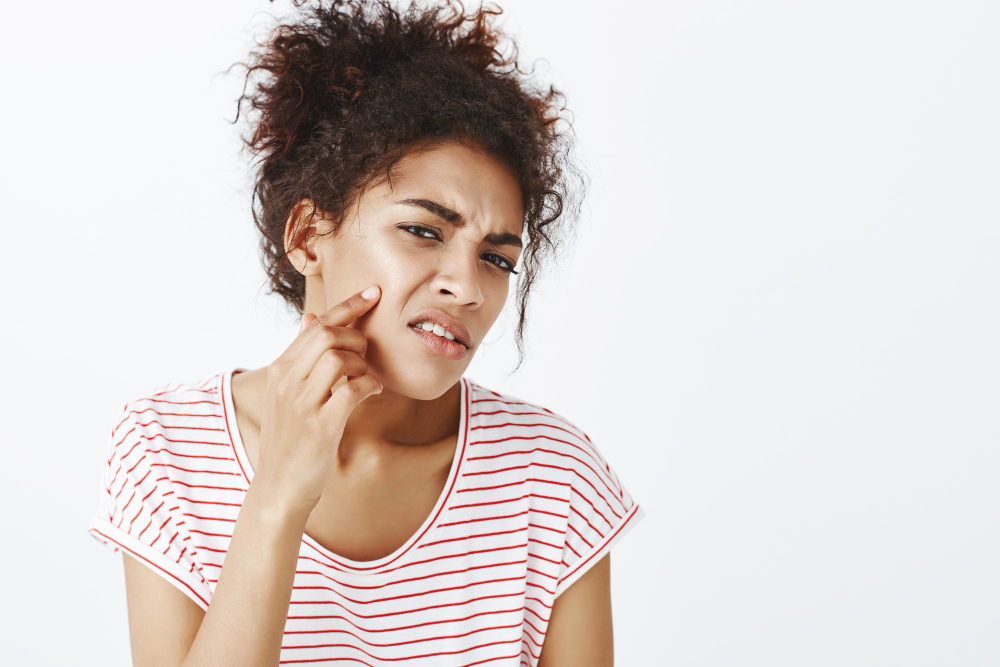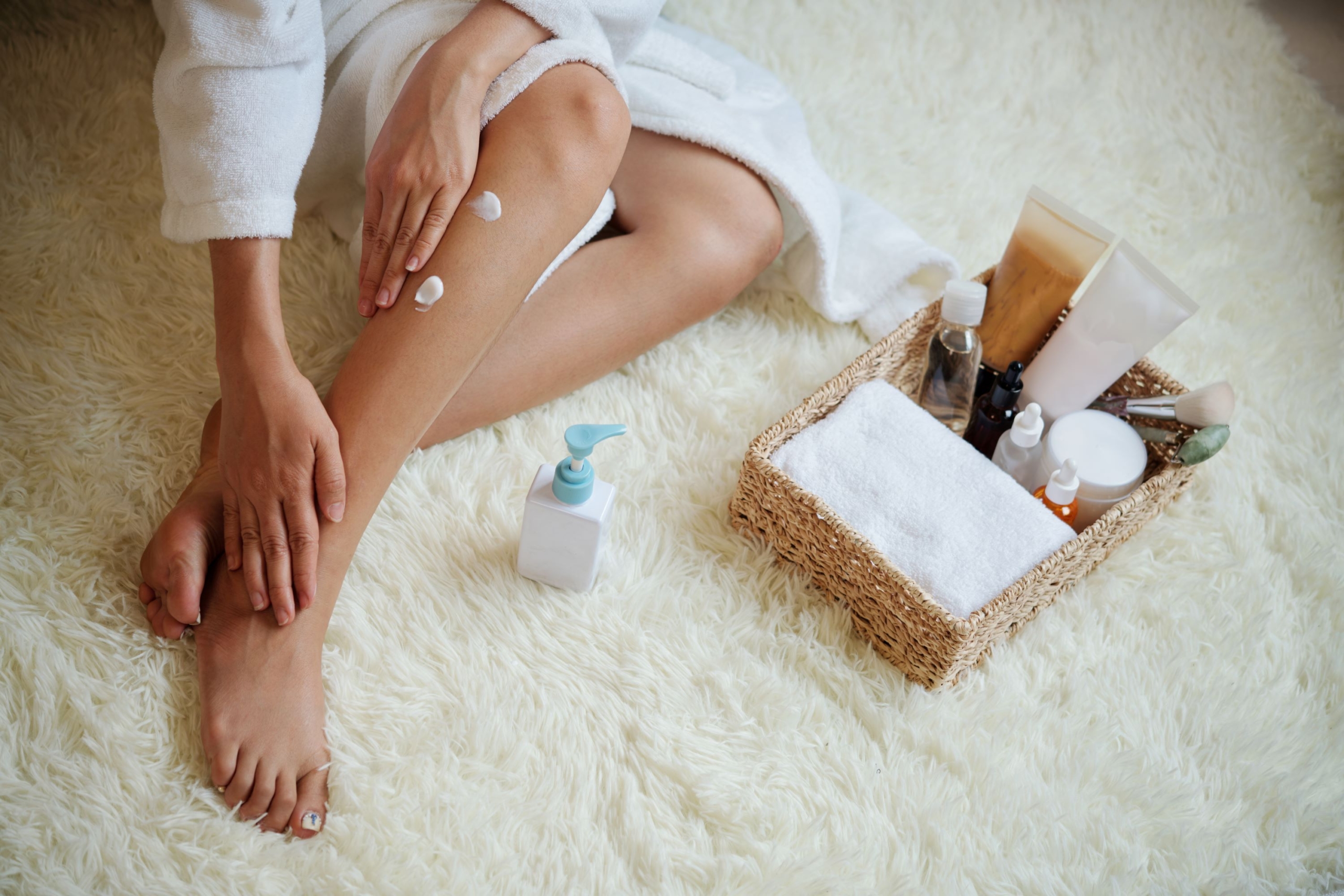What Is Dry Skin?
Dry skin is a common symptom experienced by menopausal women. It occurs as a result of hormonal changes that impact the production of natural oils and moisture in the skin. Estrogen, an essential hormone for skin health, helps maintain skin elasticity, collagen production, and hydration. As menopause approaches and estrogen levels decline, the skin’s ability to retain moisture diminishes, leading to dryness, itchiness, and increased skin sensitivity.

What Causes Dry Skin?
Estrogen plays a crucial role in maintaining skin health by influencing the production of collagen and hyaluronic acid, which are essential for skin elasticity and hydration.
As estrogen levels decrease during menopause, the skin’s natural moisture barrier weakens, making it more susceptible to dryness and irritation. The lack of moisture can result in a flaky, rough, and itchy complexion, causing discomfort and affecting the skin’s overall appearance.
Furthermore, other menopause-related symptoms, such as night sweats and hot flashes, can exacerbate dry skin, as excessive sweating can lead to dehydration and further compromise the skin’s moisture balance.


How To Get Rid Of Dry Skin
Taking care of your skin during menopause is essential to combat dryness and promote overall skin health. Here are some strategies to help alleviate dry skin:
Drink plenty of water throughout the day to maintain your body’s hydration levels and support your skin’s moisture balance.
Apply a moisturizer regularly to keep your skin hydrated and protected. Look for products that contain natural ingredients like aloe vera, shea butter, or hyaluronic acid, which can help retain moisture.
Choose mild, fragrance-free cleansers to avoid stripping your skin of its natural oils. Avoid using hot water, as it can further dry out your skin.
Limit your time in hot showers, as extended exposure to hot water can deplete your skin’s moisture. Opt for lukewarm water instead.
After showering or washing your face, gently pat your skin dry with a soft towel rather than rubbing, which can cause irritation.
Shield your skin from harsh weather conditions, such as strong winds and extreme temperatures, by wearing appropriate clothing and using sunscreen daily.
Stay away from skincare products that contain alcohol, fragrances, or other harsh chemicals that may irritate your skin.
Bioidentical hormone replacement therapy (BHRT) may help stabilize hormonal levels, potentially improving skin health and reducing dryness.
By adopting a consistent skincare routine and incorporating these strategies into your daily life, you can effectively manage dry skin and promote a healthier, more radiant complexion during menopause.
Click here to learn more about your options with the Healthy Hormone Club

